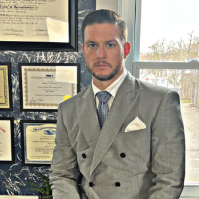Concord Criminal Lawyer, Michigan
Sponsored Law Firm
-
 x
x

Click For More Info:
-
Law Office of Mark S. Guralnick
55 Madison Avenue 4th Floor Morristown, NJ 07960» view mapCriminal Defense Law Dedicated. Fearless. Successful.
Mark S. Guralnick and his legal team have helped clients throughout the USA and across the world by applying unparalleled dedication and hard work to each case.
800-399-8371
Michael S. Rosenthal
Lawsuit & Dispute, Family Law, Criminal, Personal Injury
Status: In Good Standing
Mark J. Robison
Landlord-Tenant, Family Law, Divorce & Family Law, Criminal
Status: In Good Standing Licensed: 40 Years
Susan M. Dehncke
Divorce & Family Law, Criminal, Accident & Injury
Status: In Good Standing Licensed: 31 Years
Sean F. Carroll
Traffic, Family Law, Divorce & Family Law, Criminal
Status: In Good Standing Licensed: 33 Years
Jerrold E. Schrotenboer
Other, Federal Appellate Practice, Criminal
Status: In Good Standing Licensed: 43 Years
 Mark Guralnick Morristown, NJ
Mark Guralnick Morristown, NJ AboutLaw Office of Mark S. Guralnick
AboutLaw Office of Mark S. Guralnick Practice AreasExpertise
Practice AreasExpertise

